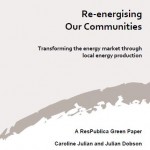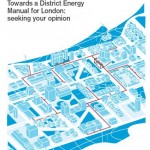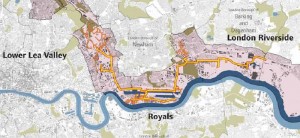Site search:
-
What’s new?
Energy for London Tags
Brent Buildings Camden Carbon Emissions CHP Cities Climate Adaptation Community Heating Community Initiatives Croydon Data DECC Decentralised Energy Distribution ECO Energy Costs Energy Efficiency Enfield FIT Fuel Poverty Funding Green Deal Hackney Haringey Housing Islington Lambeth Library Local Authorities Mayor Newham Ofgem Olympics Photovoltaics Planning RE:FIT RE:NEW Renewable Energy Retrofit Southwark Tower Hamlets Transport Waltham Forest Waste WestminsterEnergy Archives:
- February 2021 (1)
- January 2021 (15)
- December 2020 (15)
- November 2020 (9)
- October 2020 (3)
- August 2020 (5)
- July 2020 (3)
- June 2020 (4)
- April 2020 (10)
- March 2020 (5)
- February 2020 (2)
- January 2020 (3)
- October 2019 (1)
- September 2019 (4)
- August 2019 (2)
- July 2019 (1)
- August 2018 (1)
- November 2016 (8)
- October 2016 (8)
- September 2016 (2)
- August 2016 (8)
- July 2016 (14)
- April 2016 (12)
- March 2016 (16)
- February 2016 (8)
- January 2016 (4)
- December 2015 (1)
- November 2015 (1)
- October 2015 (16)
- September 2015 (3)
- June 2015 (1)
- May 2015 (1)
- April 2015 (1)
- March 2015 (1)
- February 2015 (1)
- January 2015 (1)
- December 2014 (18)
- November 2014 (4)
- August 2014 (8)
- July 2014 (7)
- June 2014 (25)
- May 2014 (8)
- April 2014 (4)
- March 2014 (12)
- February 2014 (7)
- January 2014 (13)
- December 2013 (11)
- November 2013 (15)
- October 2013 (15)
- September 2013 (18)
- August 2013 (5)
- July 2013 (20)
- June 2013 (33)
- May 2013 (8)
- April 2013 (16)
- March 2013 (25)
- February 2013 (14)
- January 2013 (20)
- December 2012 (23)
- November 2012 (23)
- October 2012 (25)
- September 2012 (14)
- July 2012 (12)
- June 2012 (43)
- May 2012 (20)
- April 2012 (8)
- March 2012 (40)
- February 2012 (39)
- January 2012 (40)
- December 2011 (22)
- November 2011 (40)
- October 2011 (33)
- September 2011 (48)
- August 2011 (40)
- July 2011 (58)
- June 2011 (41)
- May 2011 (80)
- April 2011 (38)
- March 2011 (33)
- February 2011 (25)
- January 2011 (24)
- December 2010 (3)
- November 2010 (7)
- October 2010 (6)
- September 2010 (7)
- August 2010 (1)
- July 2010 (2)
- June 2010 (4)
- May 2010 (1)
- March 2010 (3)
- February 2010 (3)
- December 2009 (5)
- November 2009 (2)
- October 2009 (3)
- July 2009 (3)
- June 2009 (1)
- April 2009 (1)
- March 2009 (1)
- February 2009 (1)
- January 2009 (1)
- December 2008 (2)
- October 2008 (1)
- September 2008 (1)
- July 2008 (1)
- March 2008 (2)
- January 2008 (2)
- October 2007 (1)
- September 2007 (3)
- July 2007 (1)
- March 2007 (1)
- February 2007 (3)
- November 2006 (3)
- August 2006 (1)
- February 2006 (1)
- May 2005 (1)
- February 2004 (1)
Tag Archives: Decentralised Energy
Transforming the energy market through local energy production
 13 February 2012: New ‘Green Paper’ from think-tank ResPublica – Re-energising Our Communities: Transforming the energy market through local energy production – focuses on opportunities for ‘community energy, referring here to the “means of generating and distributing energy that is owned and led by communities, rather than by individuals or private businesses. Community energy vehicles are democratically accountable to community members and participants and may deliver a financial return to investors, or reinvest surplus profits back into the project and wider locality.”
13 February 2012: New ‘Green Paper’ from think-tank ResPublica – Re-energising Our Communities: Transforming the energy market through local energy production – focuses on opportunities for ‘community energy, referring here to the “means of generating and distributing energy that is owned and led by communities, rather than by individuals or private businesses. Community energy vehicles are democratically accountable to community members and participants and may deliver a financial return to investors, or reinvest surplus profits back into the project and wider locality.”
The study makes a number of recommendations including:
- DECC should recognise the need for a co-ordinated support programme for community energy
- DECC, the Cabinet Office and the Treasury should conduct a cross-departmental review to examine the potential for community energy projects
- Through forthcoming changes to local government finance, local authorities may retain a share of uplifts in local business rate income which could in turn be used for community investment
- DECC and DCLG should work together to produce guidance on how the new ‘rights’ within the Localism Act 2011 could be used to support community energy.
South Kilburn decentralised energy system
February 2012: Brent Council has recently issued a tender for a major new decentralised energy heat and power system in South Kilburn. The tender outlines that “It is envisaged that c. 2 000 new homes, a new school, a healthy living centre and new commercial units will be built in the area. This site will have a high proportion of new build, medium rise social housing blocks and as such is well suited to a heat network. London Borough of Brent is procuring the services of an energy service company to finance, design, build, manage and maintain a decentralised energy system which will provide heat with a combination of CHP and boilers to the new residential and non-residential units for a period of 40 years.”
The Council is looking to a company to install the necessary infrastructure including heat pipes to establish a linked network and to distribute the heat to each building via the network. The investment required to realise the scheme is estimated by the Council to be of the order of £67m.
Additional information on the project including a timeline for the approval for the contract are provided in the following Brent Council document.
Posted in Decentralised Energy, News, Uncategorized
Tagged Brent, Community Heating, Decentralised Energy
Leave a comment
Discover Community Energy
February 2012: A coalition of organisations met with the Secretary of State for Energy to call on Government to support a dramatic increase in the role of community energy. The project website highlights how “Currently, 99% of the country’s electricity is generated by just six companies. The new coalition, which includes some of the best known and trusted national organisations including The Co-operative Group, The National Trust, The National Federation of Women’s Institutes and The Church of England, wants to start a revolution with communities at its heart which will drive a clean, affordable and secure energy system.” Read the Coalition’s Vision for community energy in 2020.
Survey of urban energy projects in the UK
February 2012: The Challenging Lock-in through Urban Energy Systems (CLUES) project will “critically assess the development of decentralised energy systems in urban areas.” Researchers are currently carrying out a survey of urban energy initiatives which is to be carried out in two stages between February and April 2012. Each stage requires around 15 minutes and can be completed at a convenient time. A summary of the results will be made freely available.
Who should take part?
Planners, policy makers, and urban designers as well as individuals working in the third sector who have been involved with projects or policy to develop energy generation (electricity and renewable heat) and/or increase energy efficiency in UK towns and cities.
How can you take part?
Simply go to the website http://www.tinyurl.com/urbanenergyclues1 – before 13th February. Please contact Graeme Sherriff at the University of Manchester for more information.
Tottenham Biomass District Heating scheme
25 January 2012: An update has been provided on – as this news release says – is the UK’s first biomass district heating scheme. Hale Village in Tottenham, London, comprises 2220 homes, which will receive heat and hot water via a biomass boiler district heating network using wood pellets. Read more here.
Posted in Decentralised Energy, News
Tagged Biomass, Community Heating, Decentralised Energy, Enfield
Leave a comment
Sky prepares big switchover to biomass power
January 2012: Business Green report on Sky’s new headquarter’s based near Heathrow where the installation of a new “combined cooling heat and power (CCHP) plant that could supply up to 40 per cent of energy to the broadcaster’s main studio complex…At full capacity, the plant will take delivery of 32 tonnes of wood chips a day, sourced from local businesses in a 25-mile radius.” Read the full news story here.
Further information is available at Sky’s Environment Review 2011 report.
Introducing a ‘junior electricity supply licence’ for boroughs
January 2012: The GLA have approved to fund a project to explore opportunities to introduce a junior electricity supply licensing system for smaller electricity generators, thus enabling London boroughs and their energy services companies to supply electricity they generate retail to their housing tenants and others. Further details on work to be commissioned here. This work will follow on from analysis already undertaken for Haringey – looking at how the council could have greater flexibility in relation to selling electricity from local CHP plants.
Major London Renewable Energy Study Published
January 2012: As part of a series of DECC-funded regional renewable energy (RE) assessments, the GLA have just published a detailed study on the potential for renewable and low carbon energy in Greater London.
The report sets out results using DECC’s standardised renewable energy assessment methodology but has also developed second tailored methodology to take into account the highly urbanised nature of London, looking at opportunities to reduce CO2 emissions utilising low-carbon decentralised energy (DE) systems such as gas-fired combined heat and power (CHP) and the use of waste heat from power stations. The tailored methodology also gives significantly greater estimates of the technical potential for certain types of RE than the DECC methodology, such as commercial scale wind turbines and photovoltaics but – importantly – the greater use of DE displaces “80% of the thermal microgeneration RE sources… based on the assumption that policies which strongly favour DE over other energy sources are required to reach high levels of heat network deployment.”
The results of this study suggest that:
- Under the DECC methodology, up to 12% and 57% of London’s consumption of electricity and heating respectively can technically be met by RE sources from within Greater London
- However the tailored methodology- for reasons detailed above – estimates RE sources can technically supply up to 34% and 49% of electricity and heating respectively (the lower RE heating figure arising out the increased use of low carbon DE heat displacing some RE heating technologies in the ‘tailored’ methodology).
- The combined technical potential for RE and DE is up to 53% and 44% of London’s consumption of electricity and heating respectively.
- The technical potential of DE using large-scale heat networks is 20% of London’s energy supply
- It is estimated that around 450MW of waste heat capacity is available from existing power stations and energy from waste (EfW) plants in the London area
The London Decentralised Energy Capacity Study can be downloaded here and comprises three reports:
- Phase 1: Technical Assessment
- Phase 2: Deployment Potential
- Phase 3: Roadmap to Deployment
Some significant datasets lie behind the study and can be downloaded from the London Datastore here.
Posted in Data Store, Library, News
Tagged DECC, Decentralised Energy, Library, Mayor, Renewable Energy
Leave a comment
Towards a District Energy Manual for London
 January 2012: The Mayor has issued a discussion paper requesting comments around detailed design guidelines for district energy projects in London. The ‘District Energy Manual for London‘ will outline how such schemes are procured and designed and also how heat networks can grow and interconnect over time into an “integrated, efficient, secure and low carbon district energy network serving the whole of London.” It is hoped that the manual will become the standard reference for developers and heat network designers and that it will underpin energy masterplans and planning agreements across London where heat networks are envisaged.
January 2012: The Mayor has issued a discussion paper requesting comments around detailed design guidelines for district energy projects in London. The ‘District Energy Manual for London‘ will outline how such schemes are procured and designed and also how heat networks can grow and interconnect over time into an “integrated, efficient, secure and low carbon district energy network serving the whole of London.” It is hoped that the manual will become the standard reference for developers and heat network designers and that it will underpin energy masterplans and planning agreements across London where heat networks are envisaged.
The discussion document outlines the scope, intention and topics considered for the future London District Energy Manual and seeks comments in relation:
- Suggested design parameters for heat networks
- Suitable heat network operating temperatures
- The use of Heat Interface Units (HIUs)
- How to plan for future district heating networks; and also
- Best practice examples of district energy systems
The deadline for comments is 3 February 2012 with a final version of the manual planned for publication towards the end of 2012.
Posted in Library, News
Tagged Community Heating, Decentralised Energy, Mayor, Planning
Leave a comment
Surrey Canal Decentralised Energy Project
December 2011: An article on the Guardian’s website includes some information a major new mixed development (shops, business space, 2,400 homes and a new ‘Sporting Village’ based around Millwall Football Club) planned for Lewisham – Surrey Canal – which is planned to form part of a district heating scheme using waste heat from the nearby SELCHP waste to energy plant.
A proposed heat network route from SELCHP is also being examined by neighbouring borough Southwark, to supply heat to a number of nearby estates (details previously posted here and here): the power station is currently wasting enough waste heat to supply both these routes and more development sites should they come along.
More information on the energy strategy for the Surrey Canal development can be found in the following energy assessment for the site submitted as part of the planning application. (Direct link above – the full planning application can be viewed here – the energy assessment is saved under ‘Supporting Reports Vol.1’).
Posted in News
Tagged Decentralised Energy, Lewisham, Planning, SELCHP, Southwark, Waste
Leave a comment
Haringey DE and retrofit studies
December 2011: As part of the work undertaken for the EST Local Carbon Framework’s pilot, Haringey – one of the 9 pilot areas (the only one in London however) – has developed five areas of study of interest to the borough looking at:
- Housing retrofit potential in North London – a detailed report for which can be downloaded here .
- Solar Power on Council buildings the outputs of which include:
- Green enterprise in the Upper Lee Valley – which produced the Upper Lee Valley low carbon economy report (PDF 6.2MB)
- Selling electricity from Combined Heat and Power Schemes – which looks at Haringey potentially acquiring a “Lite Supply Licence” which would allow a district heating operator to sell electricity at retail rates to consumers with fewer risks and complexities (report here)
- Producing guidance for Decentralised Energy Schemes – the purpose of which was to gain an understanding of the potential for district heating networks in the borough based on heat loads and likely capital costs and cash flows, and set up organisational structures to oversee a strategic approach to delivering DE networks.


